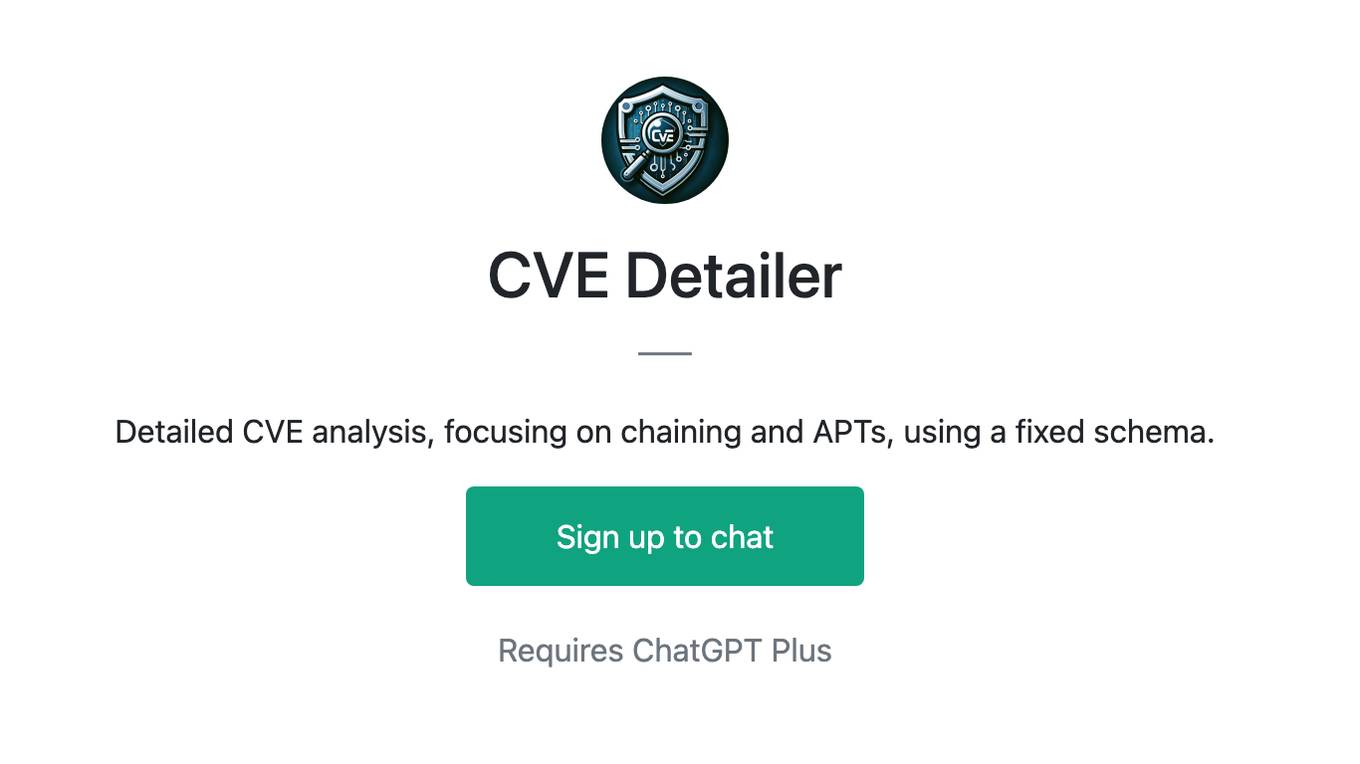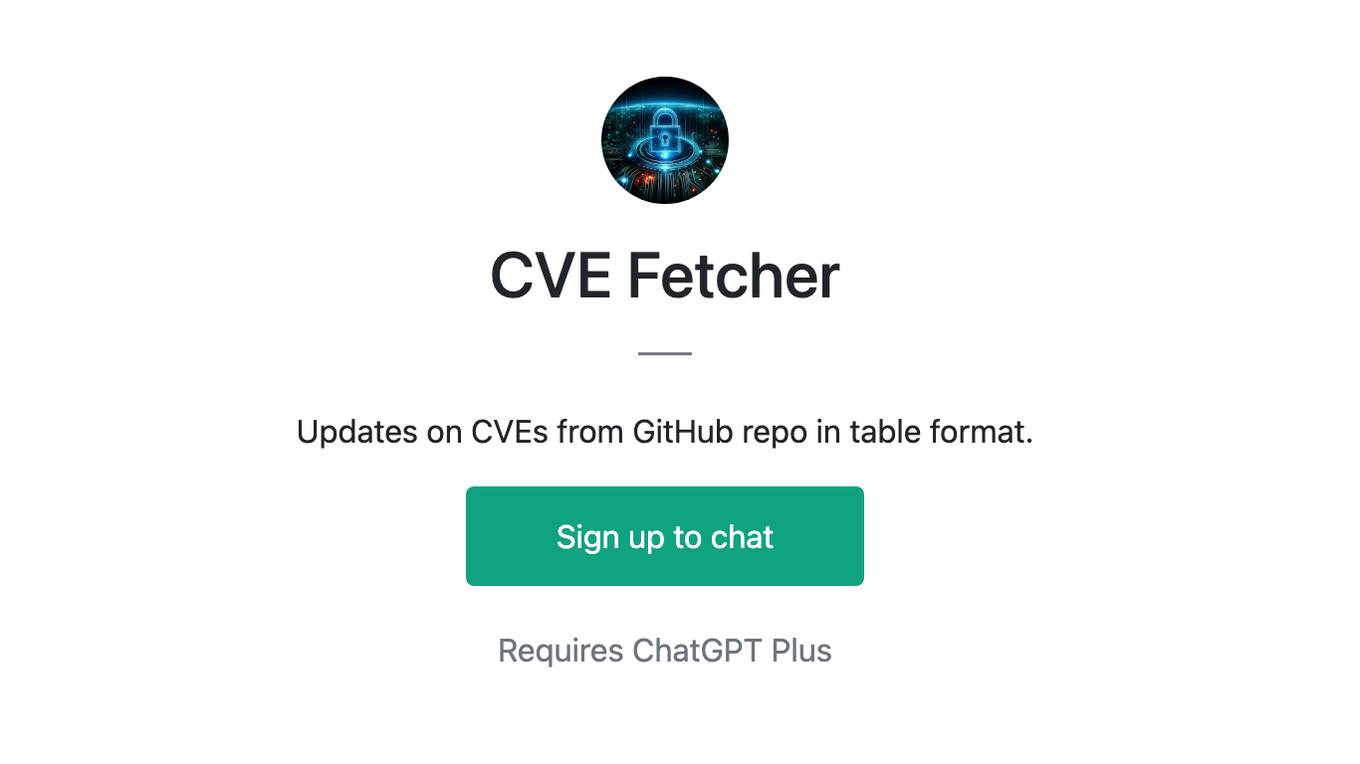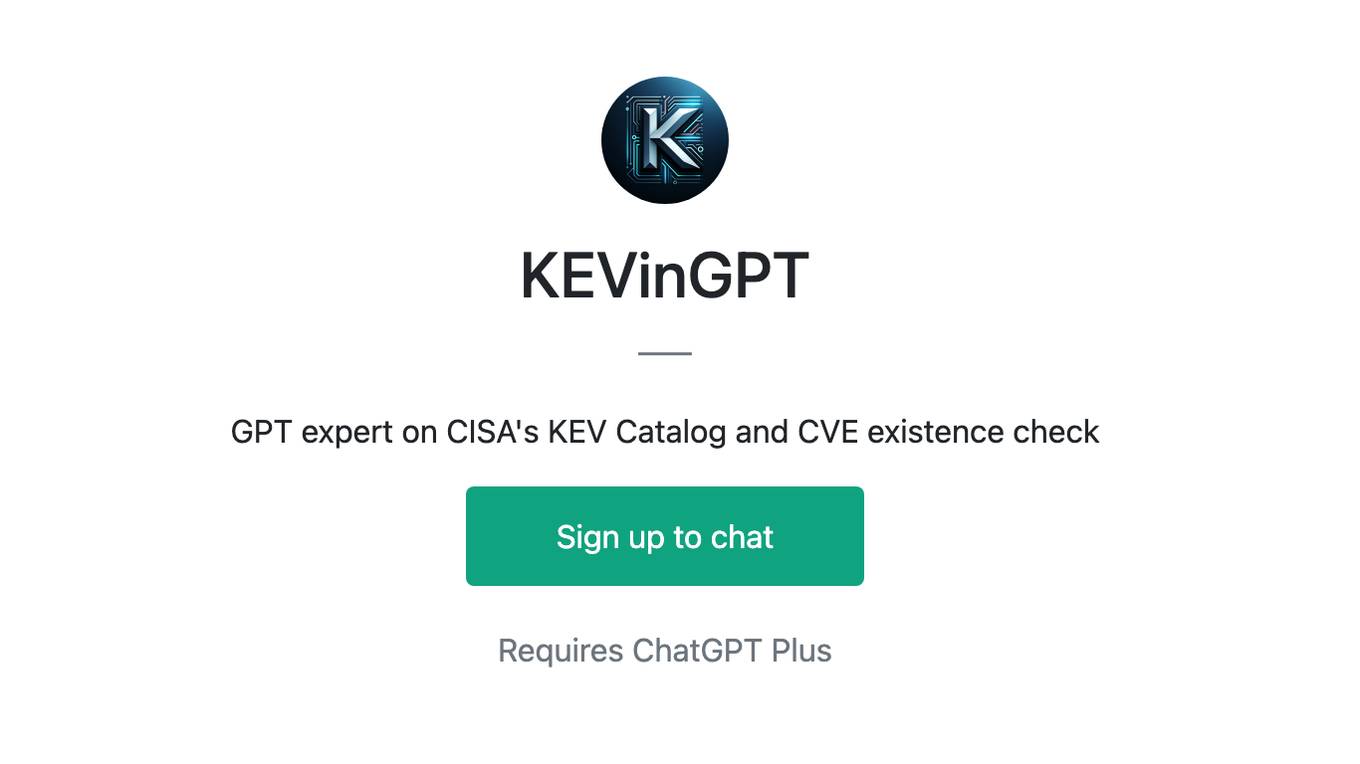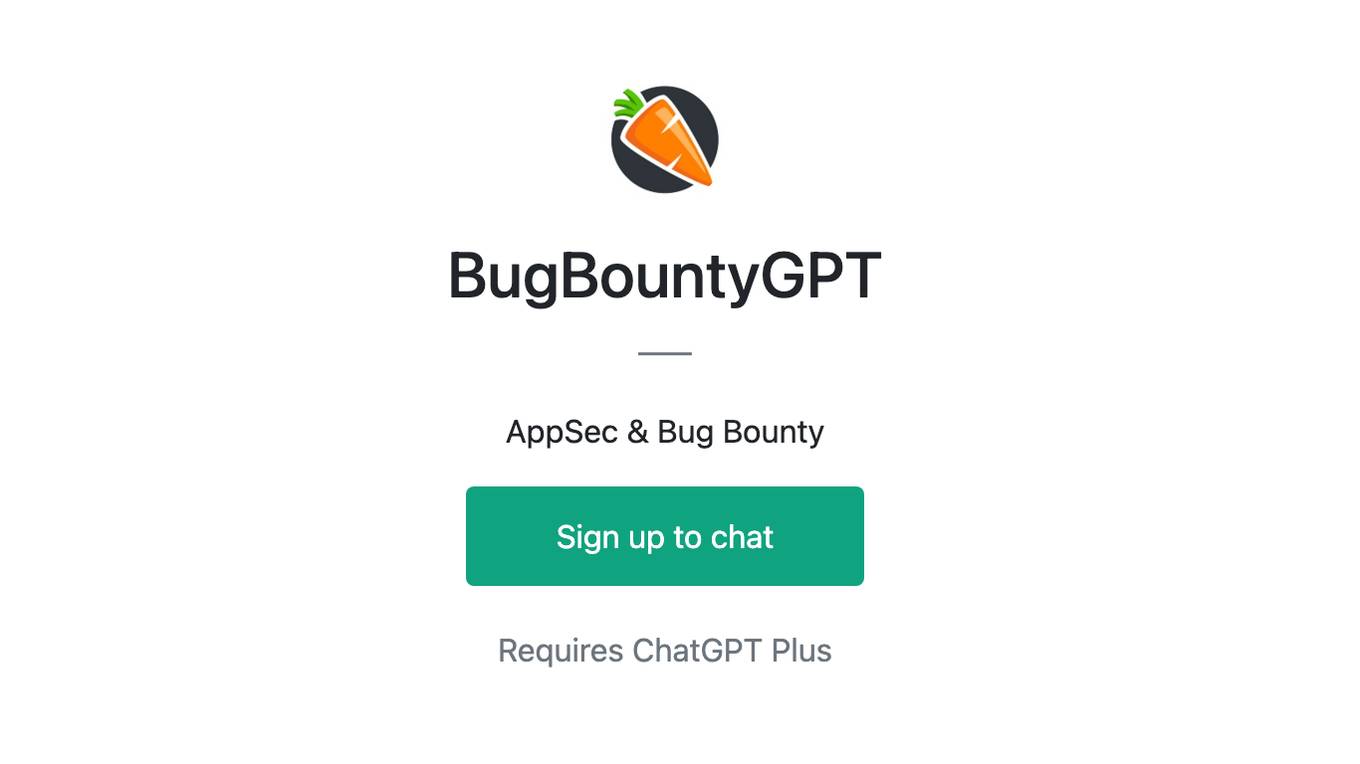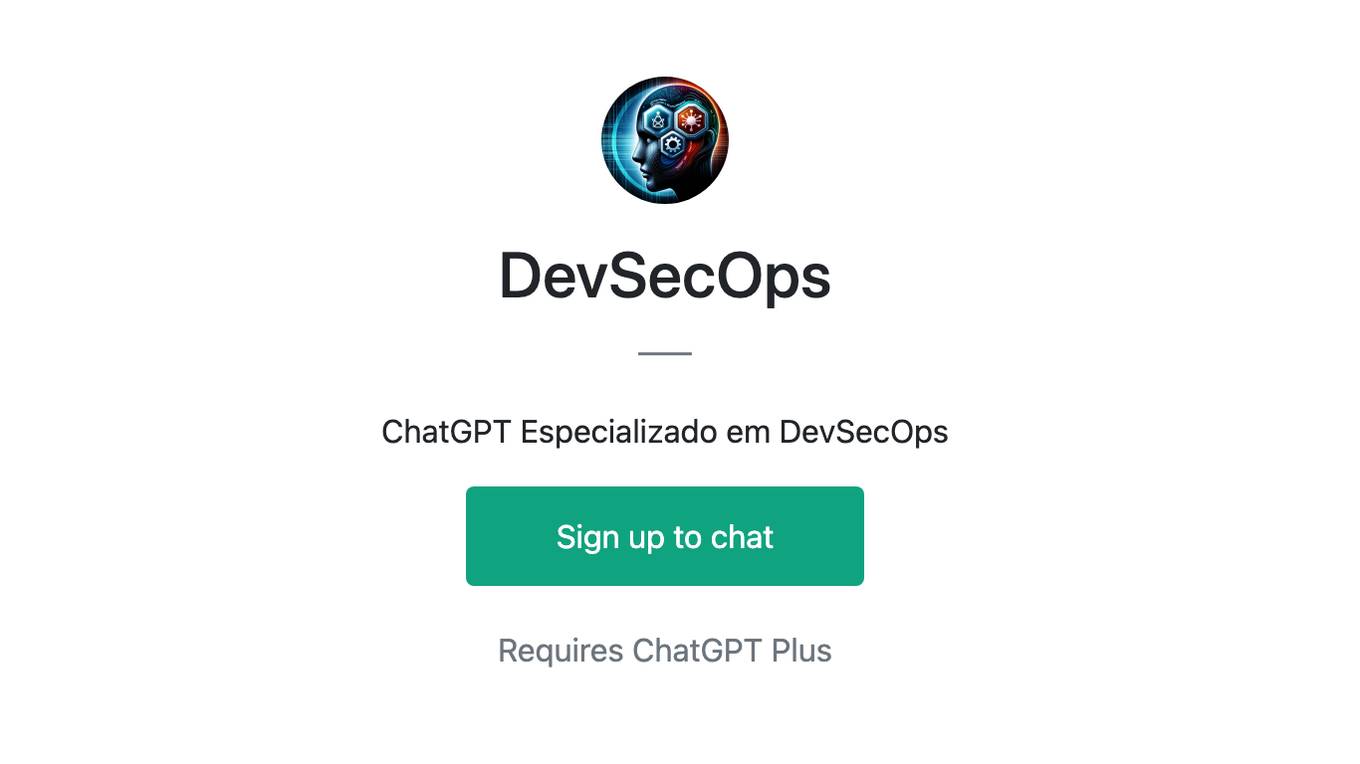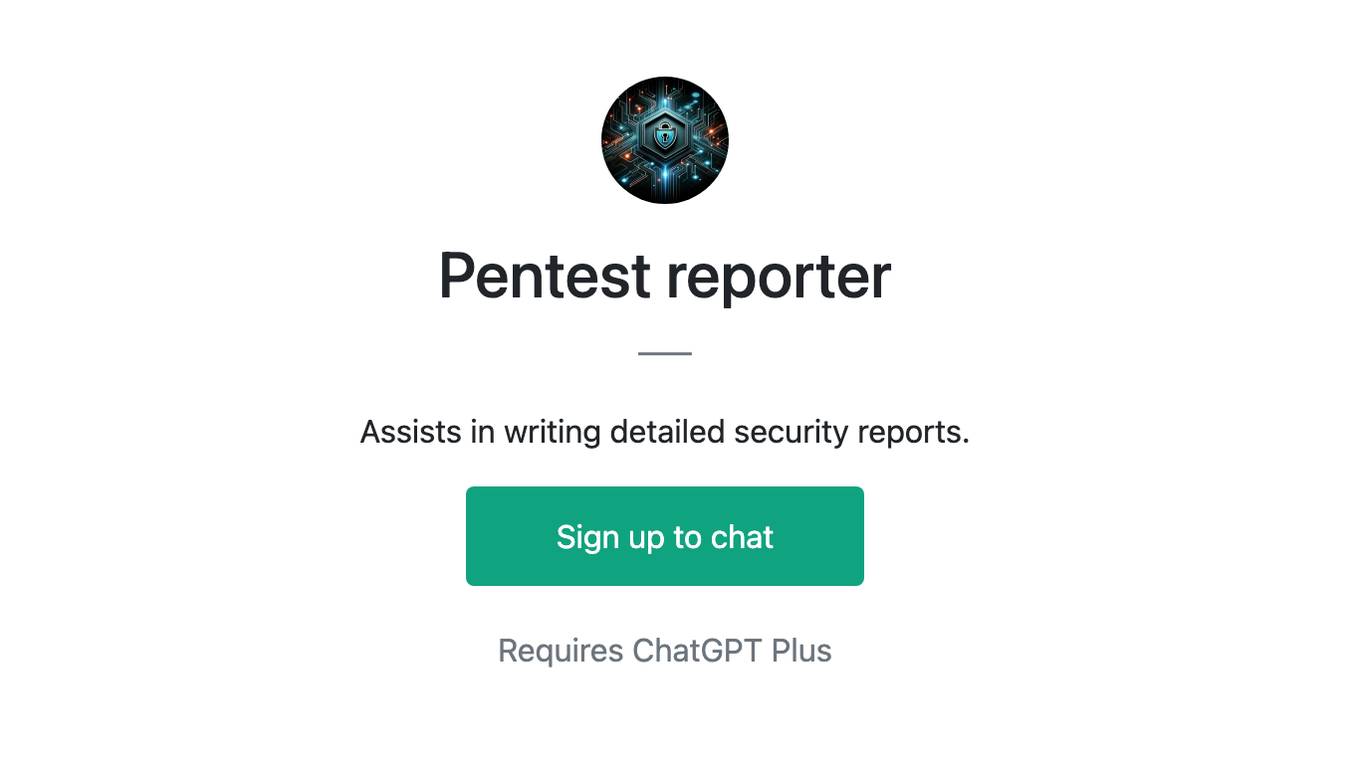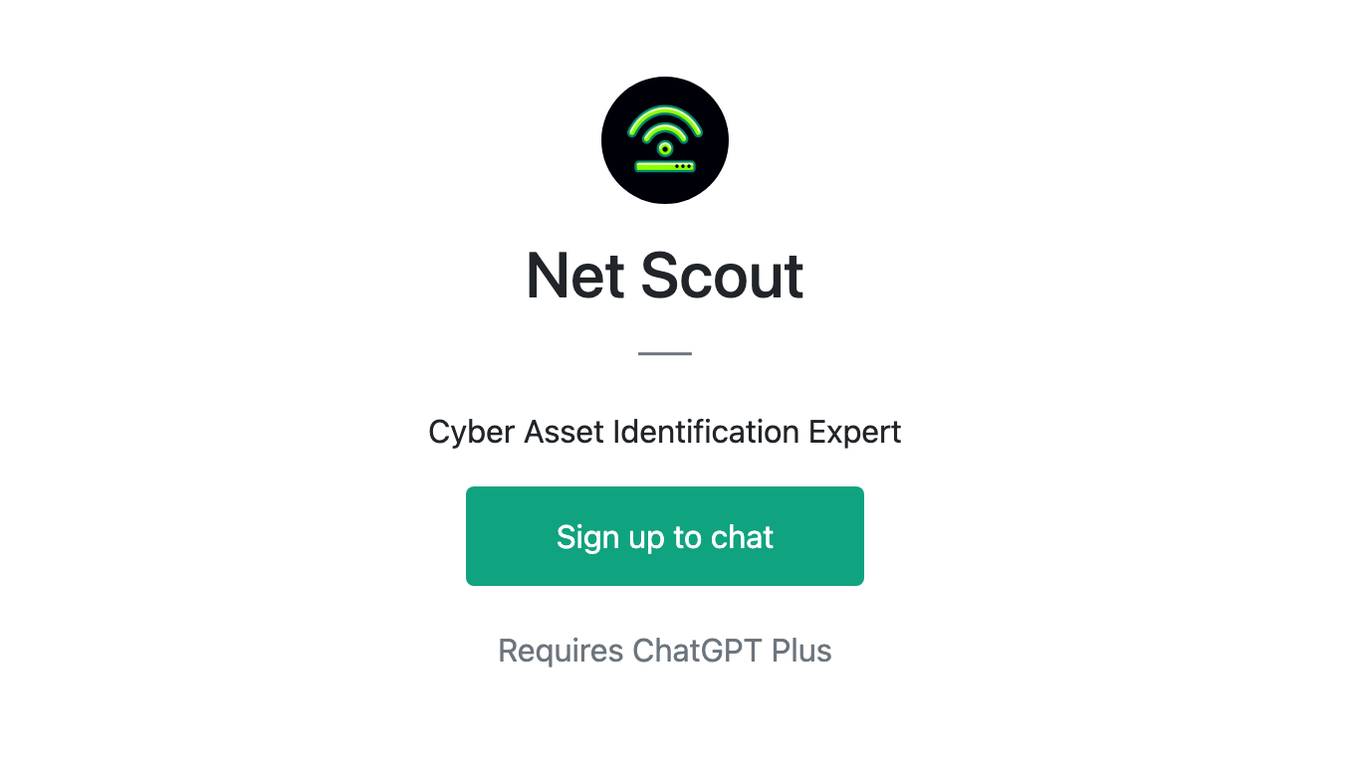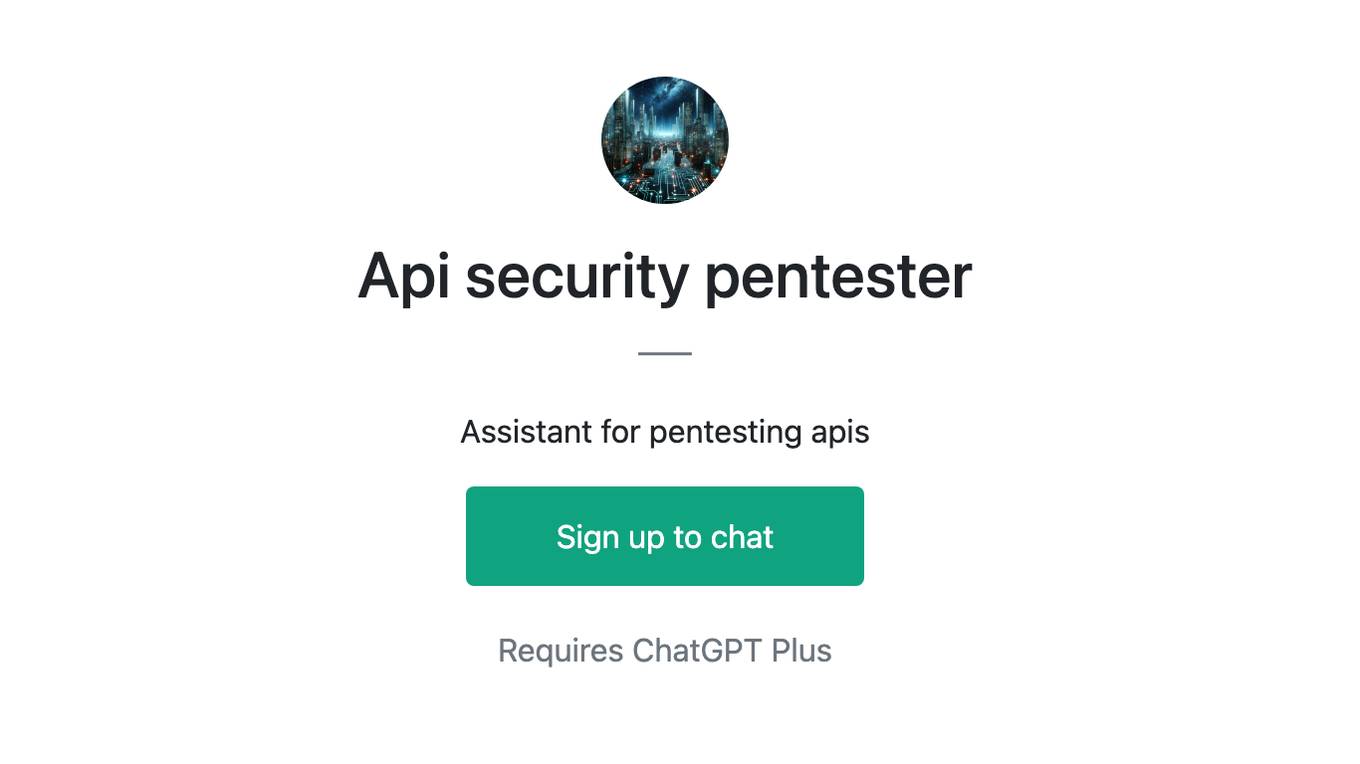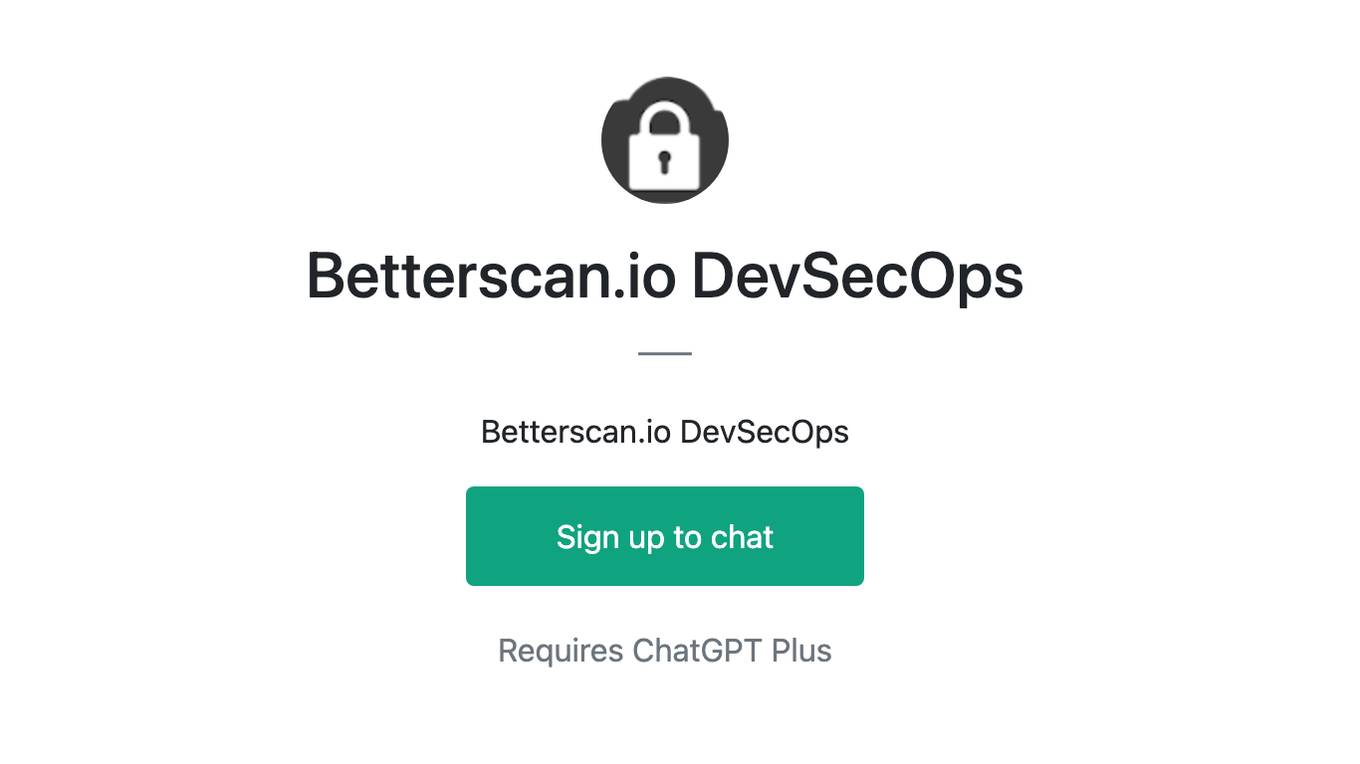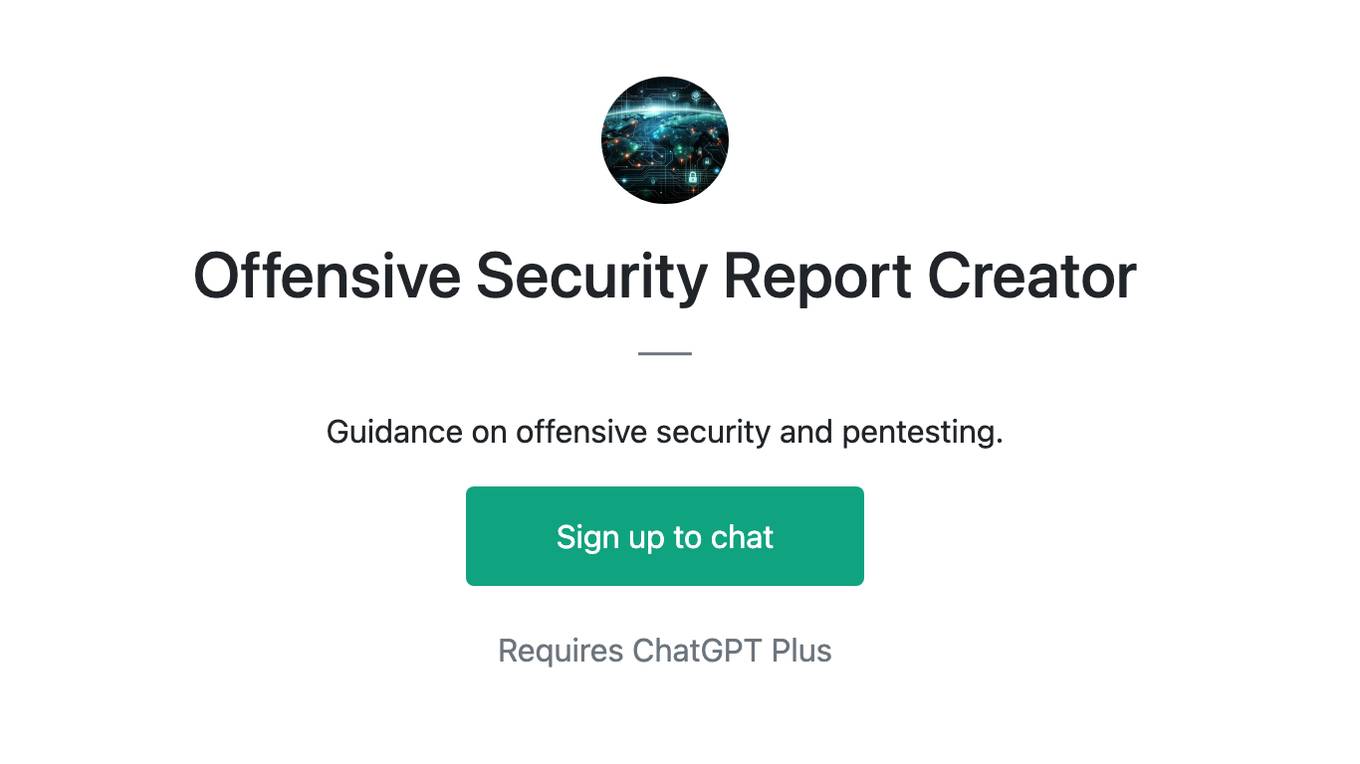Best AI tools for< Vulnerability Mitigation >
20 - AI tool Sites
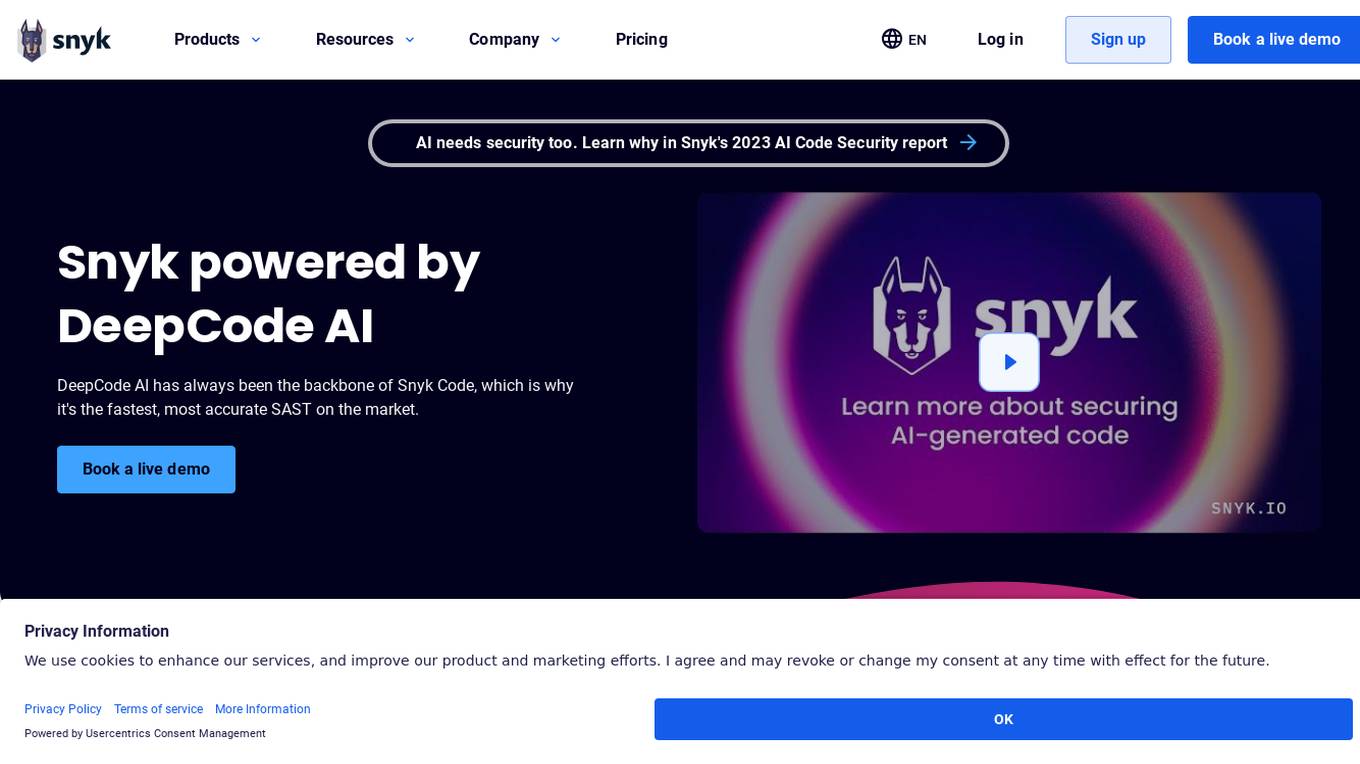
Snyk
Snyk is a developer security platform powered by DeepCode AI, offering solutions for application security, software supply chain security, and secure AI-generated code. It provides comprehensive vulnerability data, license compliance management, and self-service security education. Snyk integrates AI models trained on security-specific data to secure applications and manage tech debt effectively. The platform ensures developer-first security with one-click security fixes and AI-powered recommendations, enhancing productivity while maintaining security standards.

Tokenomist.ai
Tokenomist.ai is an AI-powered security service website that helps protect against online attacks by enabling cookies and blocking malicious activities. It uses advanced algorithms to detect and prevent security threats, ensuring a safe browsing experience for users. The platform is designed to safeguard websites from potential risks and vulnerabilities, offering a reliable security solution for online businesses and individuals.

Smaty.xyz
Smaty.xyz is a comprehensive platform that provides a suite of tools for code generation and security auditing. With Smaty.xyz, developers can quickly and easily generate high-quality code in multiple programming languages, ensuring consistency and reducing development time. Additionally, Smaty.xyz offers robust security auditing capabilities, enabling developers to identify and address vulnerabilities in their code, mitigating risks and enhancing the overall security of their applications.
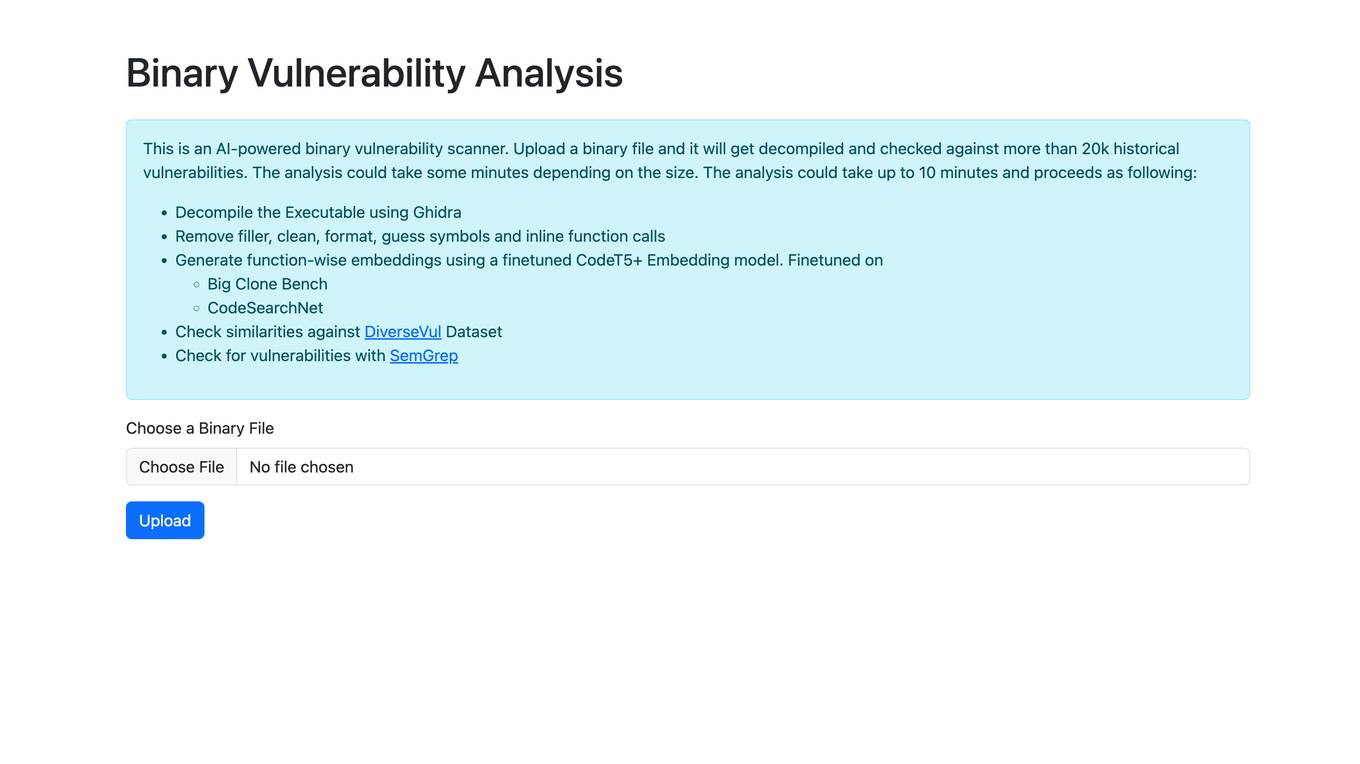
Binary Vulnerability Analysis
The website offers an AI-powered binary vulnerability scanner that allows users to upload a binary file for analysis. The tool decompiles the executable, removes filler, cleans, formats, and checks for historical vulnerabilities. It generates function-wise embeddings using a finetuned CodeT5+ Embedding model and checks for similarities against the DiverseVul Dataset. The tool also utilizes SemGrep to check for vulnerabilities in the binary file.
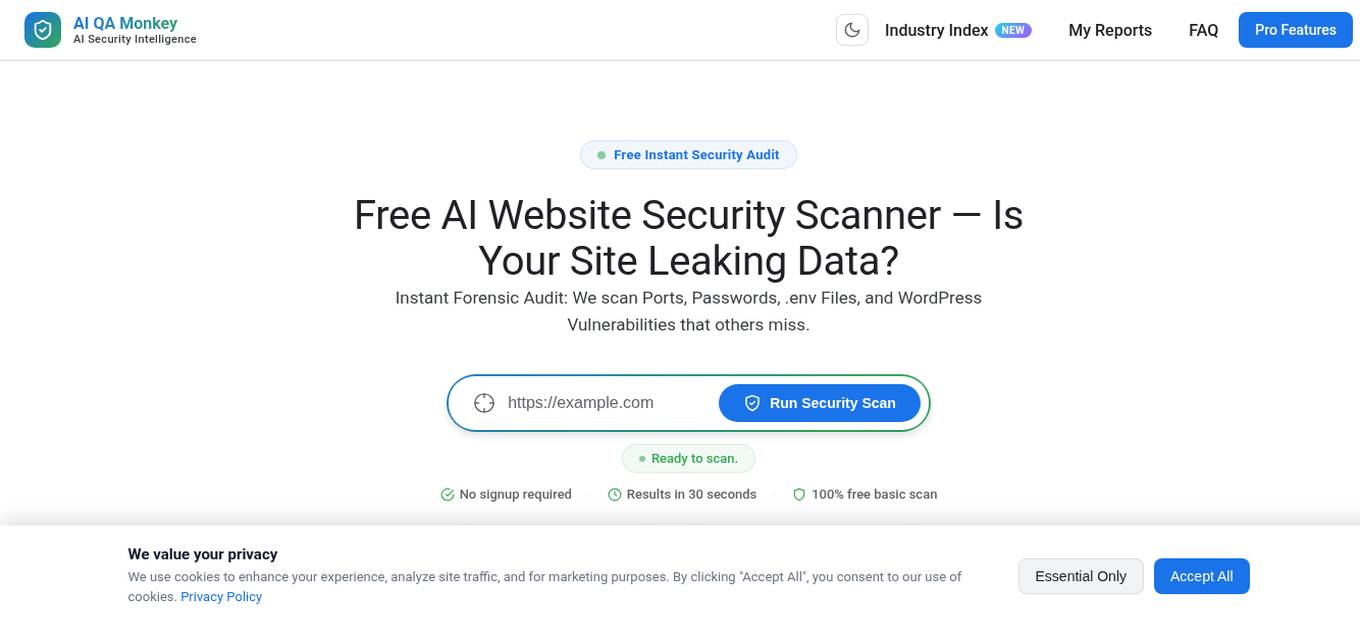
AI QA Monkey
AI QA Monkey is a free website security scanner that offers instant security audits to check website security scores. The tool scans for vulnerabilities such as leaked sensitive data, open ports, passwords, .env files, and WordPress vulnerabilities. It provides a detailed security report with actionable insights and AI-powered fixes. Users can export reports in PDF, JSON, or CSV formats. AI QA Monkey is designed to help businesses improve their security posture and comply with GDPR regulations.

OpenBuckets
OpenBuckets is a web application designed to help users find and secure open buckets in cloud storage systems. It provides a simple and efficient way to identify and protect sensitive data that may be exposed due to misconfigured cloud storage settings. With OpenBuckets, users can easily scan their cloud storage accounts for publicly accessible buckets and take necessary actions to safeguard their information.
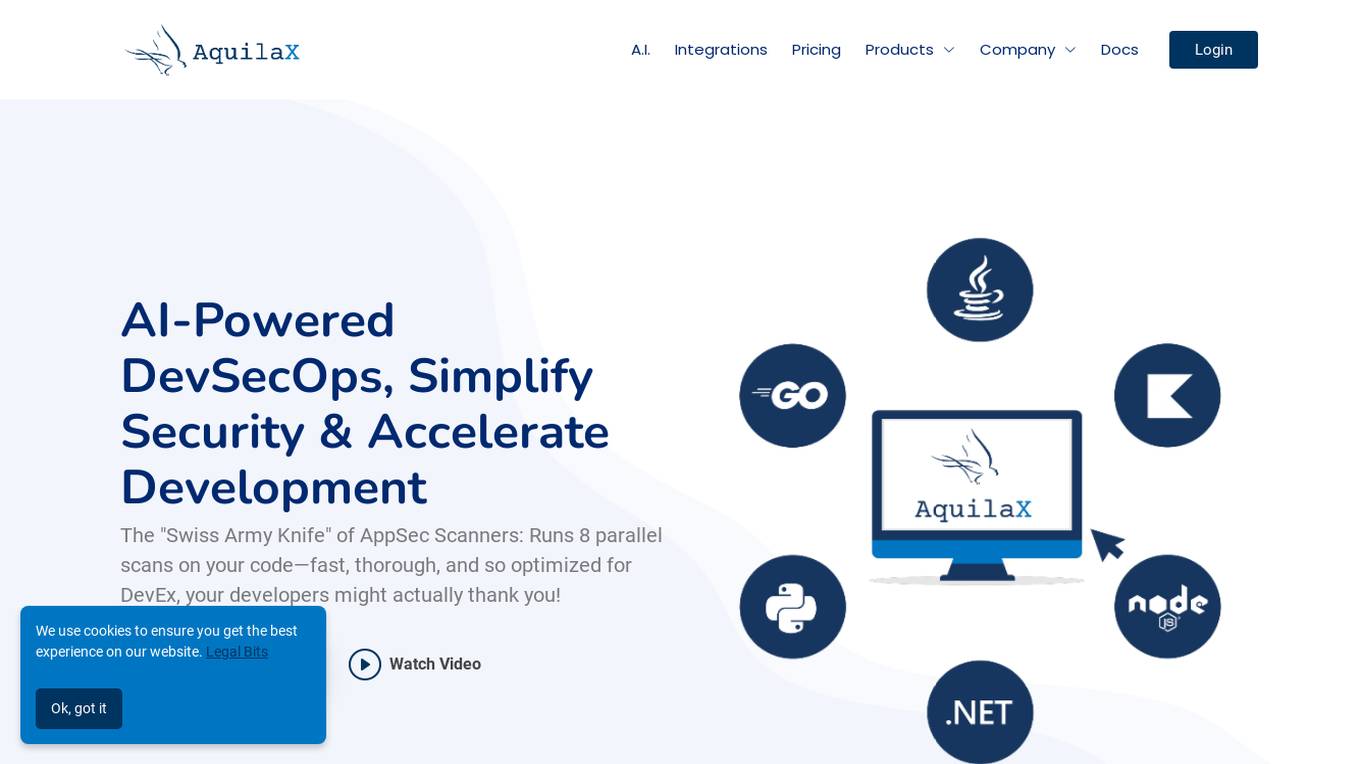
AquilaX
AquilaX is an AI-powered DevSecOps platform that simplifies security and accelerates development processes. It offers a comprehensive suite of security scanning tools, including secret identification, PII scanning, SAST, container scanning, and more. AquilaX is designed to integrate seamlessly into the development workflow, providing fast and accurate results by leveraging AI models trained on extensive datasets. The platform prioritizes developer experience by eliminating noise and false positives, making it a go-to choice for modern Secure-SDLC teams worldwide.
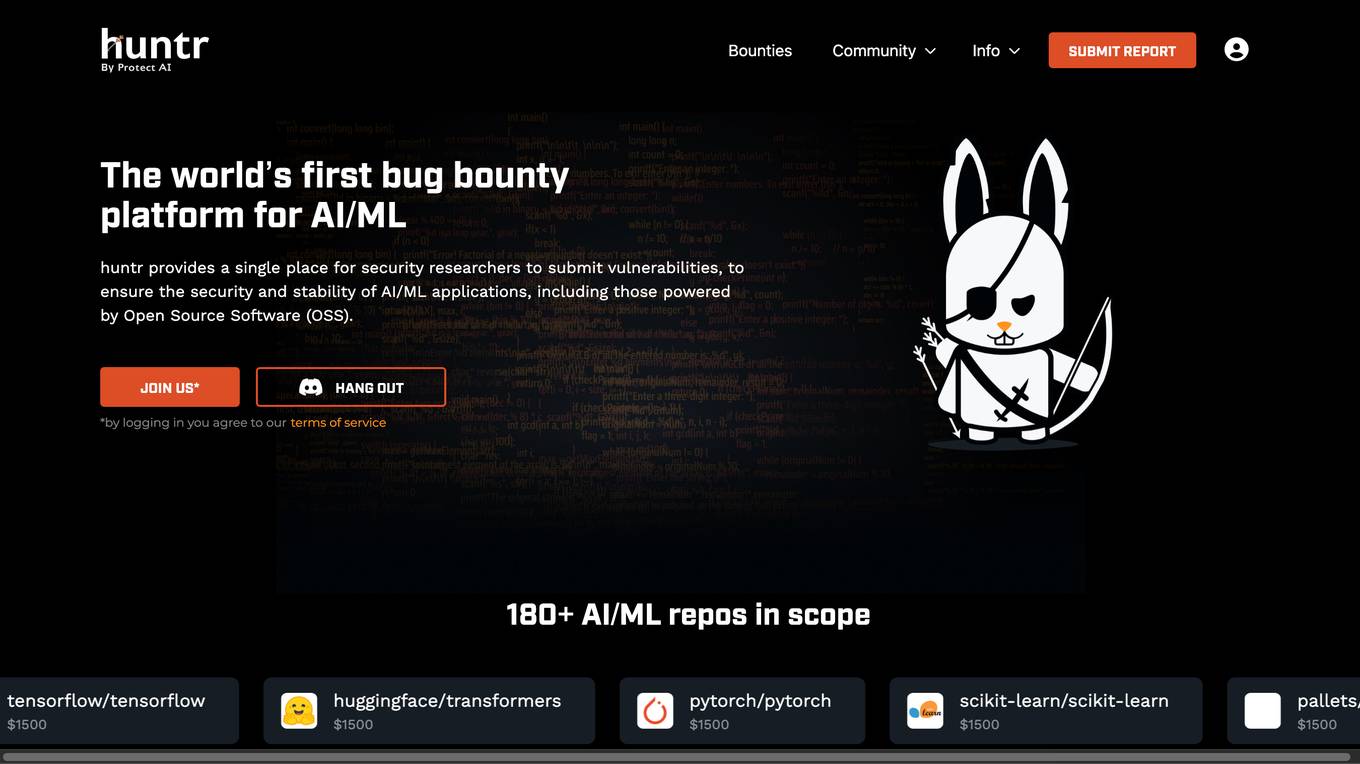
Huntr
Huntr is the world's first bug bounty platform for AI/ML. It provides a single place for security researchers to submit vulnerabilities, ensuring the security and stability of AI/ML applications, including those powered by Open Source Software (OSS).

Cyble
Cyble is a leading threat intelligence platform offering products and services recognized by top industry analysts. It provides AI-driven cyber threat intelligence solutions for enterprises, governments, and individuals. Cyble's offerings include attack surface management, brand intelligence, dark web monitoring, vulnerability management, takedown and disruption services, third-party risk management, incident management, and more. The platform leverages cutting-edge AI technology to enhance cybersecurity efforts and stay ahead of cyber adversaries.

Kindo
Kindo is an AI-powered platform designed for DevSecOps teams to automate tasks, write doctrine, and orchestrate infrastructure responses. It offers AI-powered Runbook automations to streamline workflows, automate tedious tasks, and enhance security controls. Kindo enables users to offload time-consuming tasks to AI Agents, prioritize critical tasks, and monitor AI-related activities for compliance and informed decision-making. The platform provides a comprehensive vantage point for modern infrastructure defense and instrumentation, allowing users to create repeatable processes, automate vulnerability assessment and remediation, and secure multi-cloud IAM configurations.
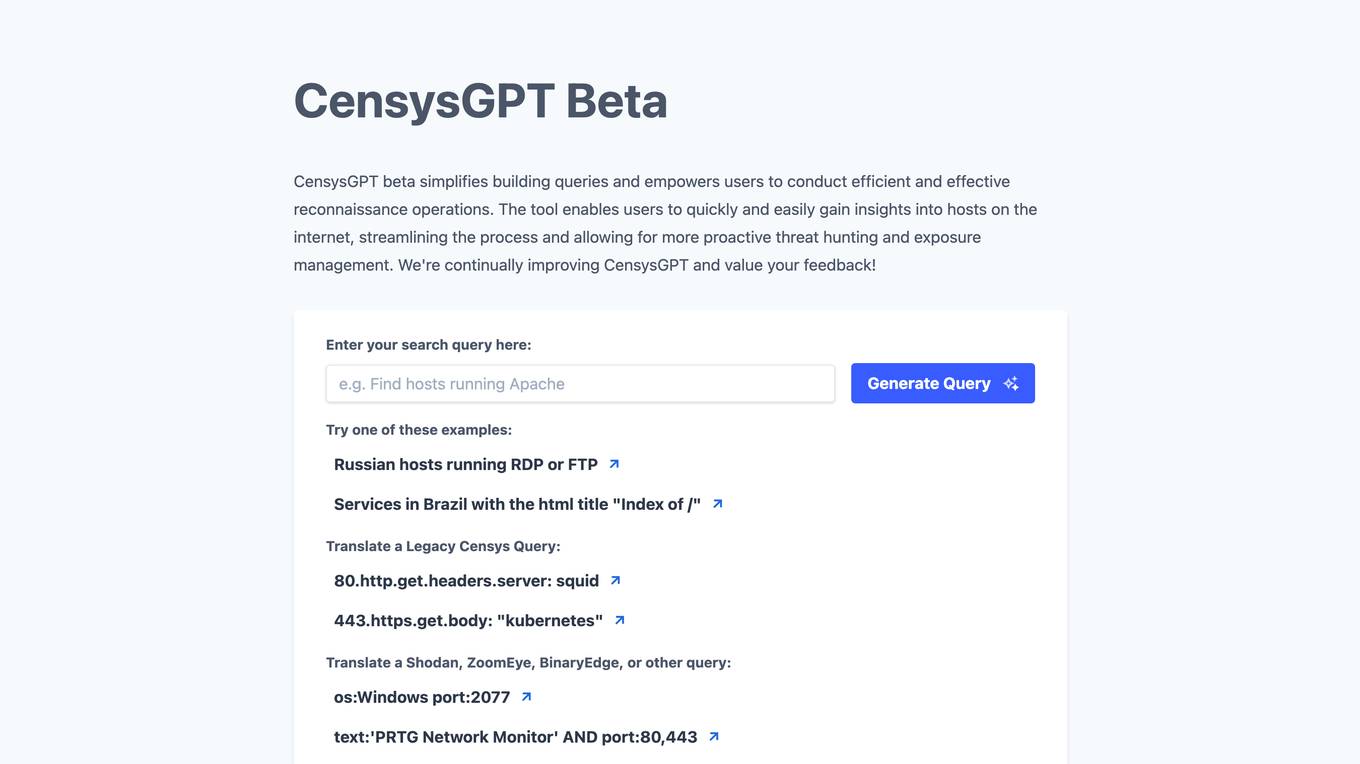
CensysGPT Beta
CensysGPT Beta is a tool that simplifies building queries and empowers users to conduct efficient and effective reconnaissance operations. It enables users to quickly and easily gain insights into hosts on the internet, streamlining the process and allowing for more proactive threat hunting and exposure management.
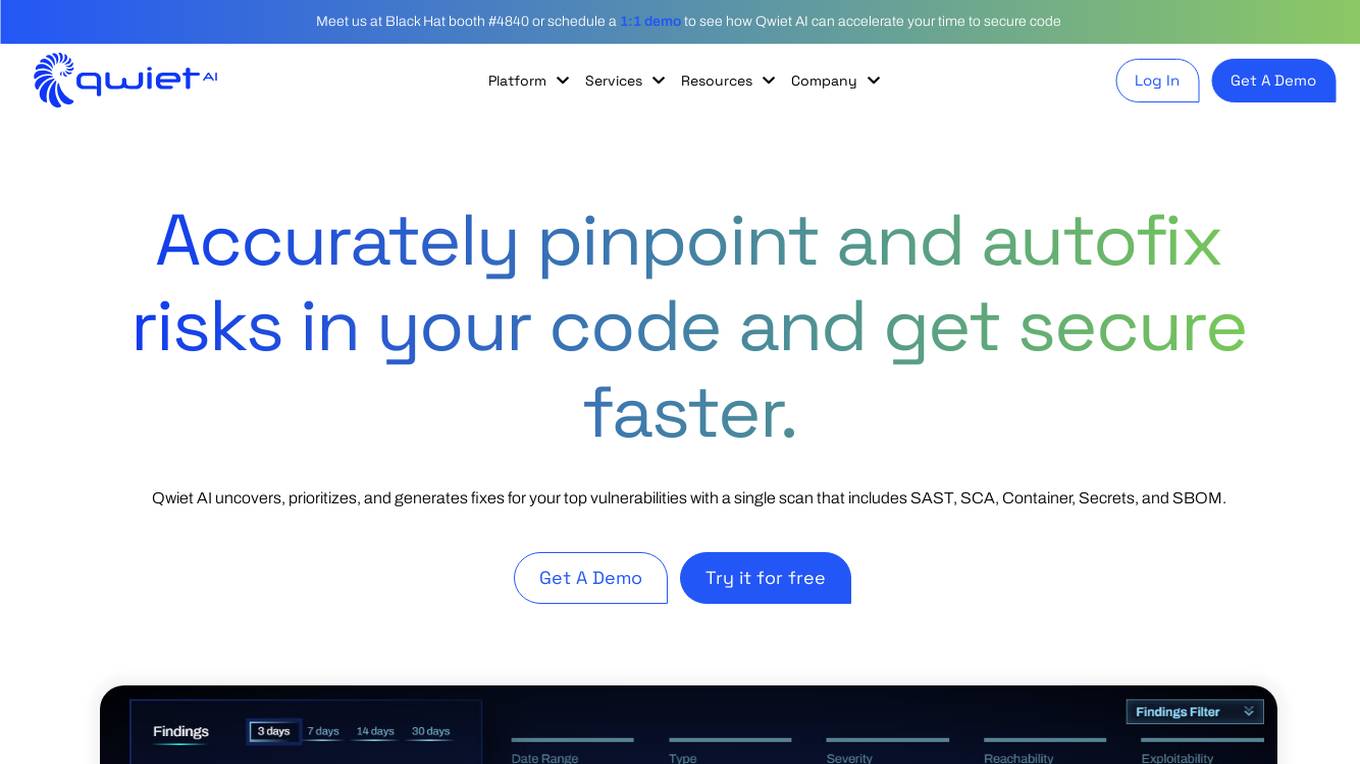
Qwiet AI
Qwiet AI is a code vulnerability detection platform that accelerates secure coding by uncovering, prioritizing, and generating fixes for top vulnerabilities with a single scan. It offers features such as AI-enhanced SAST, contextual SCA, AI AutoFix, Container Security, SBOM, and Secrets detection. Qwiet AI helps InfoSec teams in companies to accurately pinpoint and autofix risks in their code, reducing false positives and remediation time. The platform provides a unified vulnerability dashboard, prioritizes risks, and offers tailored fix suggestions based on the full context of the code.
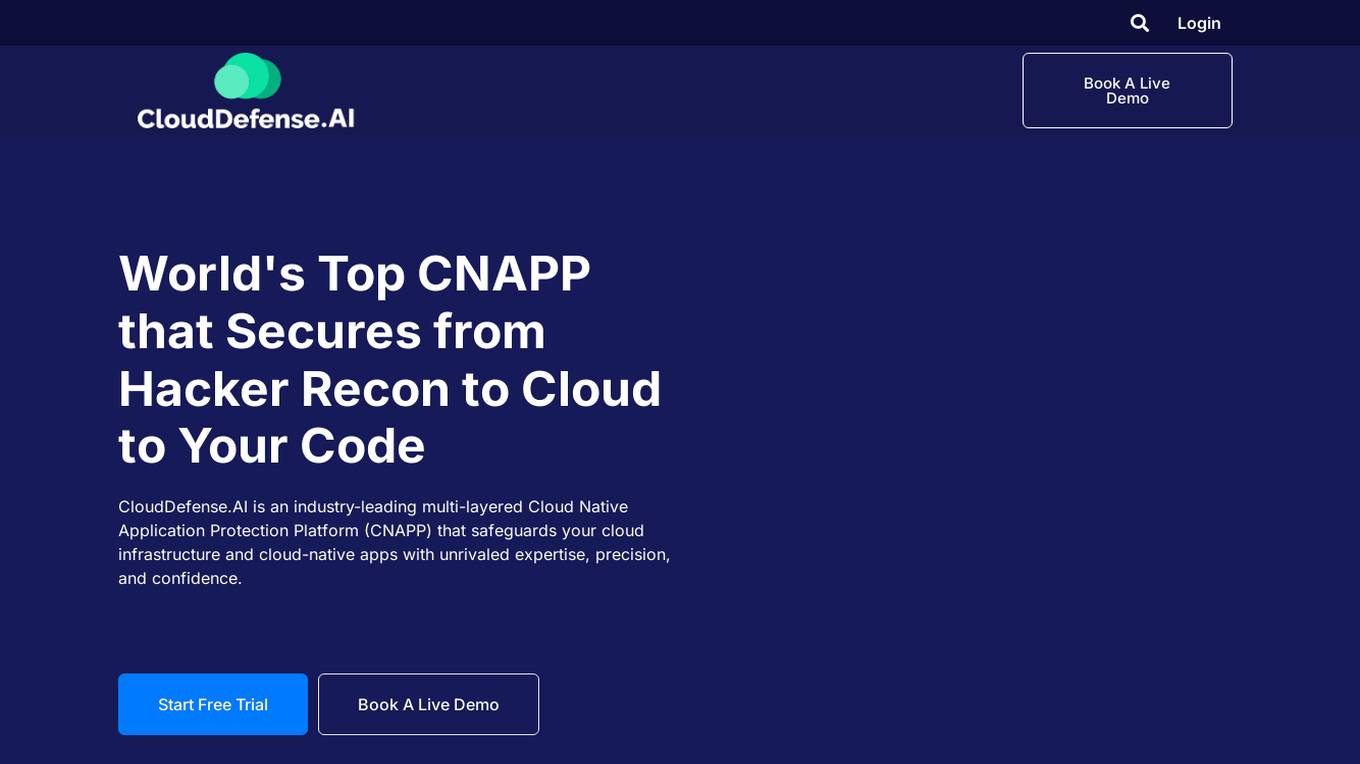
CloudDefense.AI
CloudDefense.AI is an industry-leading multi-layered Cloud Native Application Protection Platform (CNAPP) that safeguards cloud infrastructure and cloud-native apps with expertise, precision, and confidence. It offers comprehensive cloud security solutions, vulnerability management, compliance, and application security testing. The platform utilizes advanced AI technology to proactively detect and analyze real-time threats, ensuring robust protection for businesses against cyber threats.
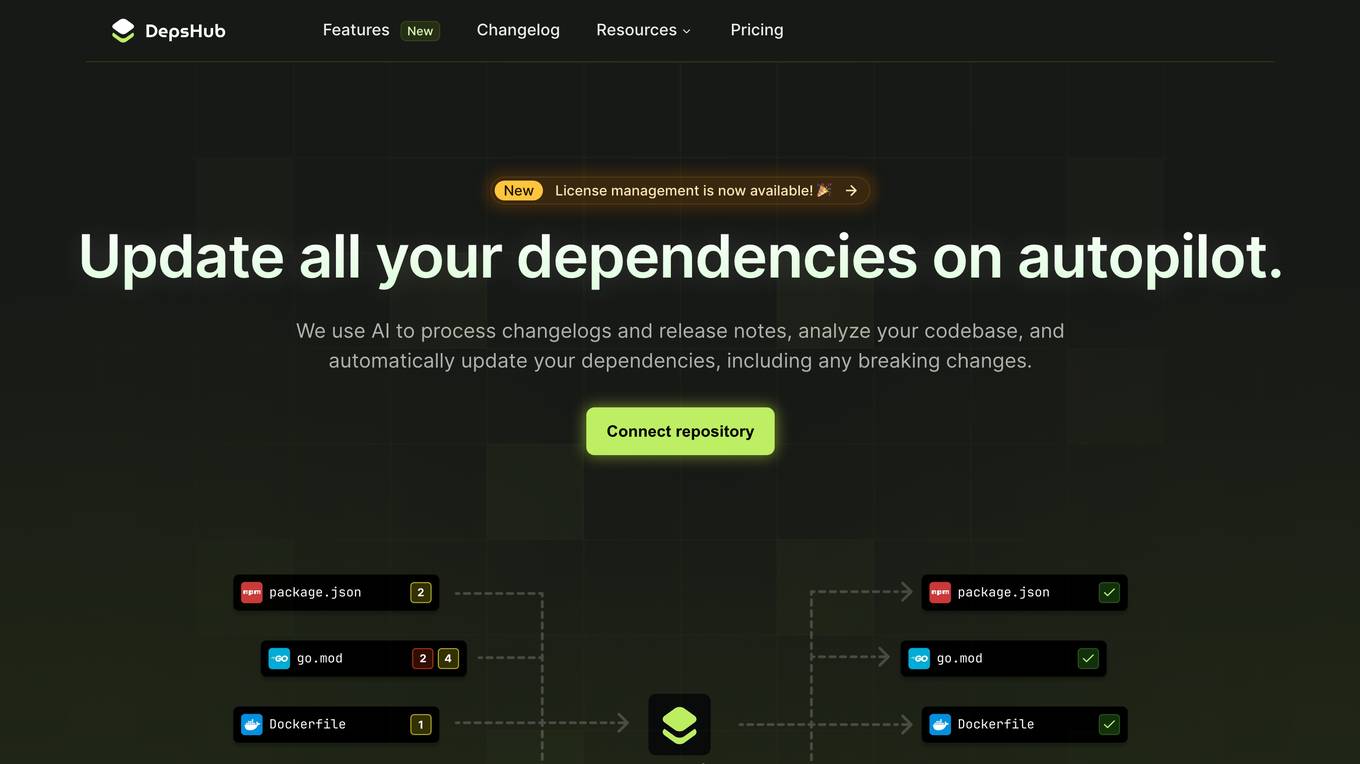
DepsHub
DepsHub is an AI-powered tool designed to simplify dependency updates for software development teams. It offers automatic dependency updates, license checks, and security vulnerability scanning to ensure teams stay secure and up-to-date. With noise-free dependency management, cross-repository overview, license compliance, and security alerts, DepsHub streamlines the process of managing dependencies for teams of any size. The AI-powered engine analyzes library changelogs, release notes, and codebases to automatically update dependencies, including handling breaking changes. DepsHub supports a wide range of languages and frameworks, making it easy for teams to integrate with their favorite technologies and save time by focusing on writing code that matters.
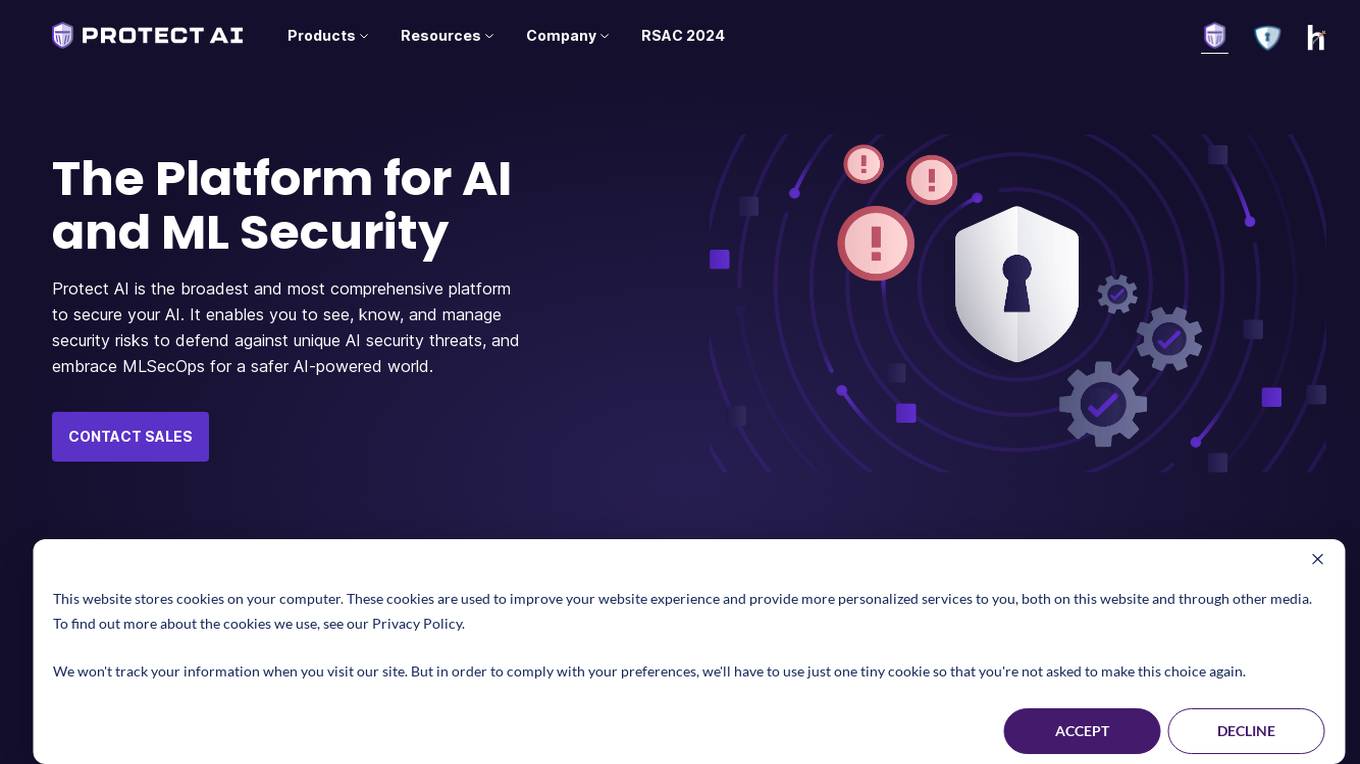
Protect AI
Protect AI is a comprehensive platform designed to secure AI systems by providing visibility and manageability to detect and mitigate unique AI security threats. The platform empowers organizations to embrace a security-first approach to AI, offering solutions for AI Security Posture Management, ML model security enforcement, AI/ML supply chain vulnerability database, LLM security monitoring, and observability. Protect AI aims to safeguard AI applications and ML systems from potential vulnerabilities, enabling users to build, adopt, and deploy AI models confidently and at scale.
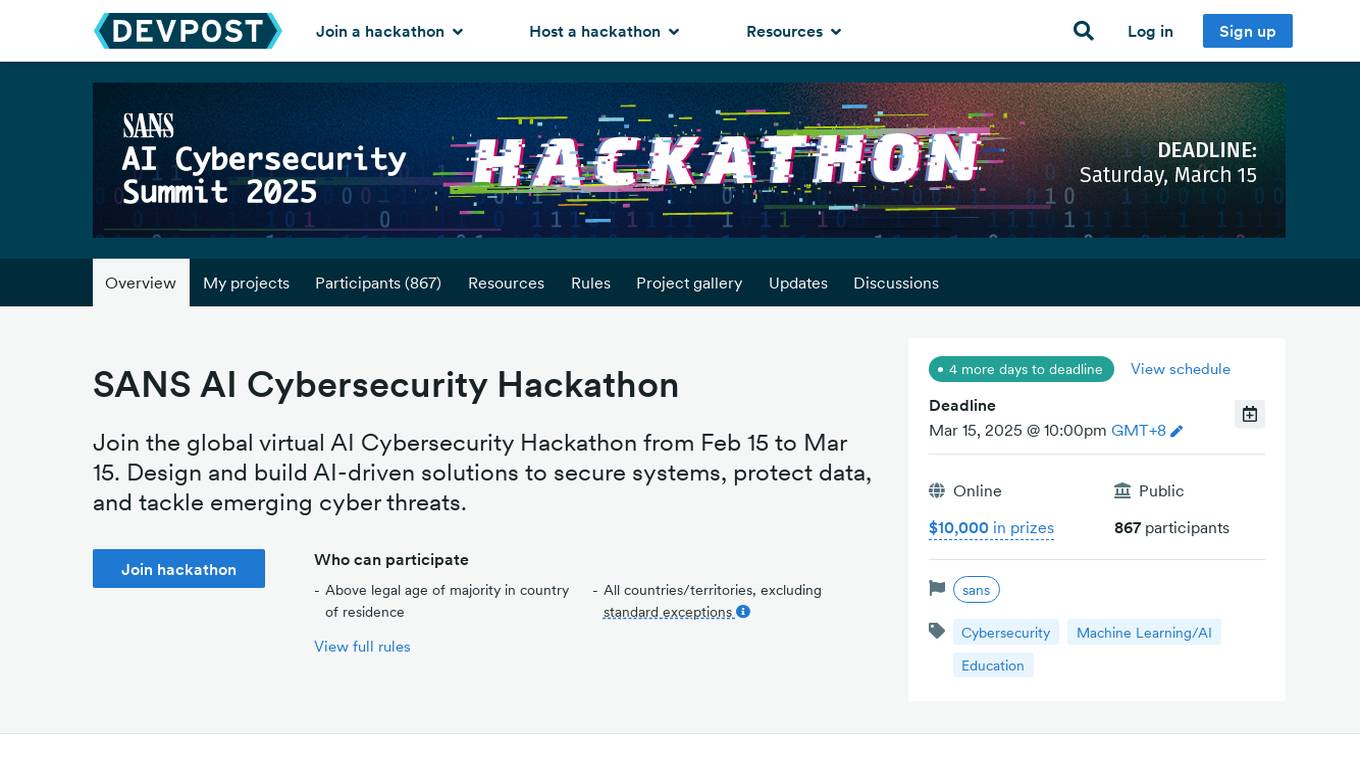
SANS AI Cybersecurity Hackathon
SANS AI Cybersecurity Hackathon is a global virtual competition that challenges participants to design and build AI-driven solutions to secure systems, protect data, and counter emerging cyber threats. The hackathon offers a platform for cybersecurity professionals and students to showcase their creativity and technical expertise, connect with a global community, and make a real-world impact through AI innovation. Participants are required to create open-source solutions addressing pressing cybersecurity challenges by integrating AI, with a focus on areas like threat detection, incident response, vulnerability scanning, security dashboards, digital forensics, and more.

BigBear.ai
BigBear.ai is an AI-powered decision intelligence solutions provider that offers services across various industries including Government & Defense, Manufacturing & Warehouse Operations, Healthcare & Life Sciences. They specialize in optimizing operational efficiency, force deployment, supply chain management, autonomous systems management, and vulnerability detection. Their solutions are designed to improve situational awareness, streamline production processes, and enhance patient care delivery settings.
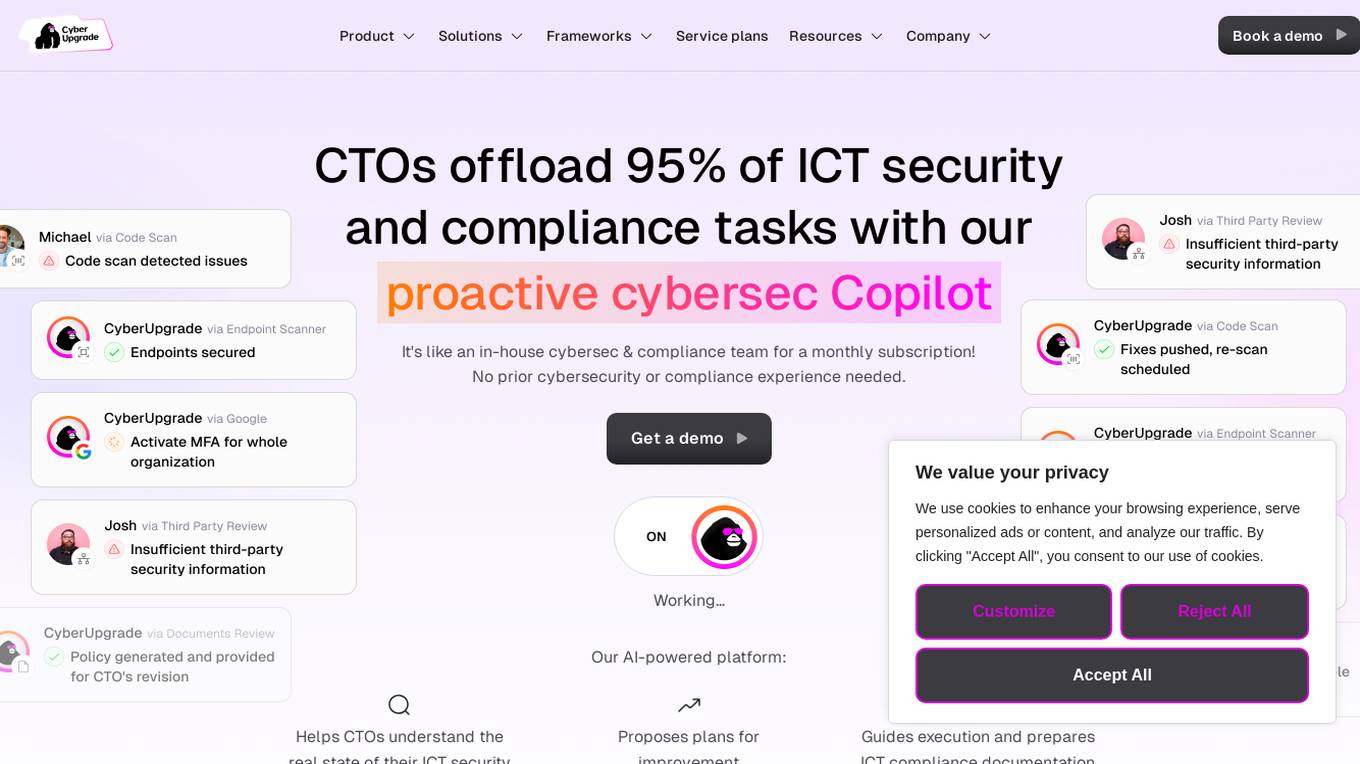
CyberUpgrade
CyberUpgrade.net is an AI-powered platform that offers comprehensive cybersecurity and compliance solutions for organizations of all sizes. It provides automated compliance, risk management, vendor risk assessment, policy management, audit management, and 24/7 security support. The platform features a cloud vulnerability scanner, security awareness training, pentesting, business continuity planning, disaster recovery planning, and an AI-powered assistant for seamless security support. CyberUpgrade helps CTOs understand their organization's security status, proposes improvement plans, guides execution, and prepares compliance documentation with a push of a button. It engages every employee individually for evidence collection and situation analysis, ensuring real cybersecurity measures are in place.
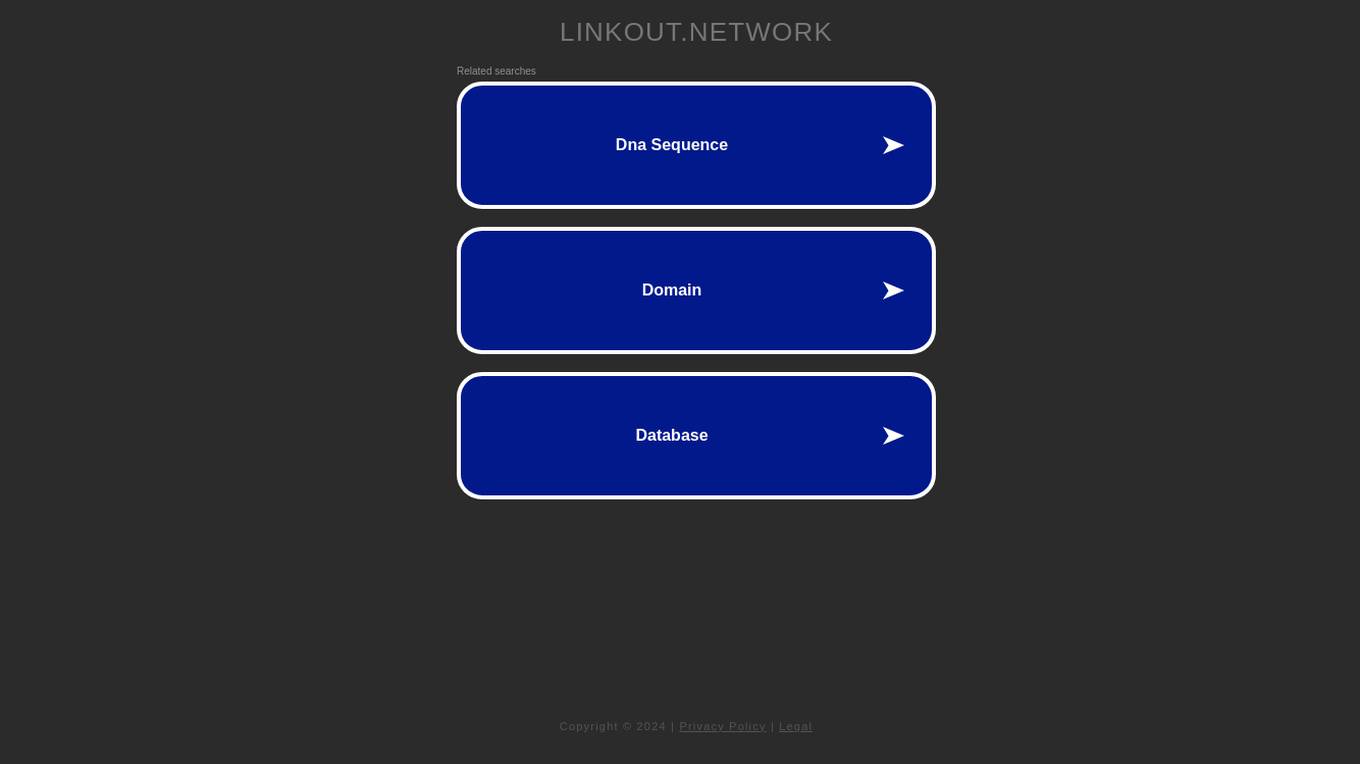
SMshrimant
SMshrimant is a personal website belonging to a Bug Bounty Hunter, Security Researcher, Penetration Tester, and Ethical Hacker. The website showcases the creator's skills and experiences in the field of cybersecurity, including bug hunting, security vulnerability reporting, open-source tool development, and participation in Capture The Flag competitions. Visitors can learn about the creator's projects, achievements, and contact information for inquiries or collaborations.
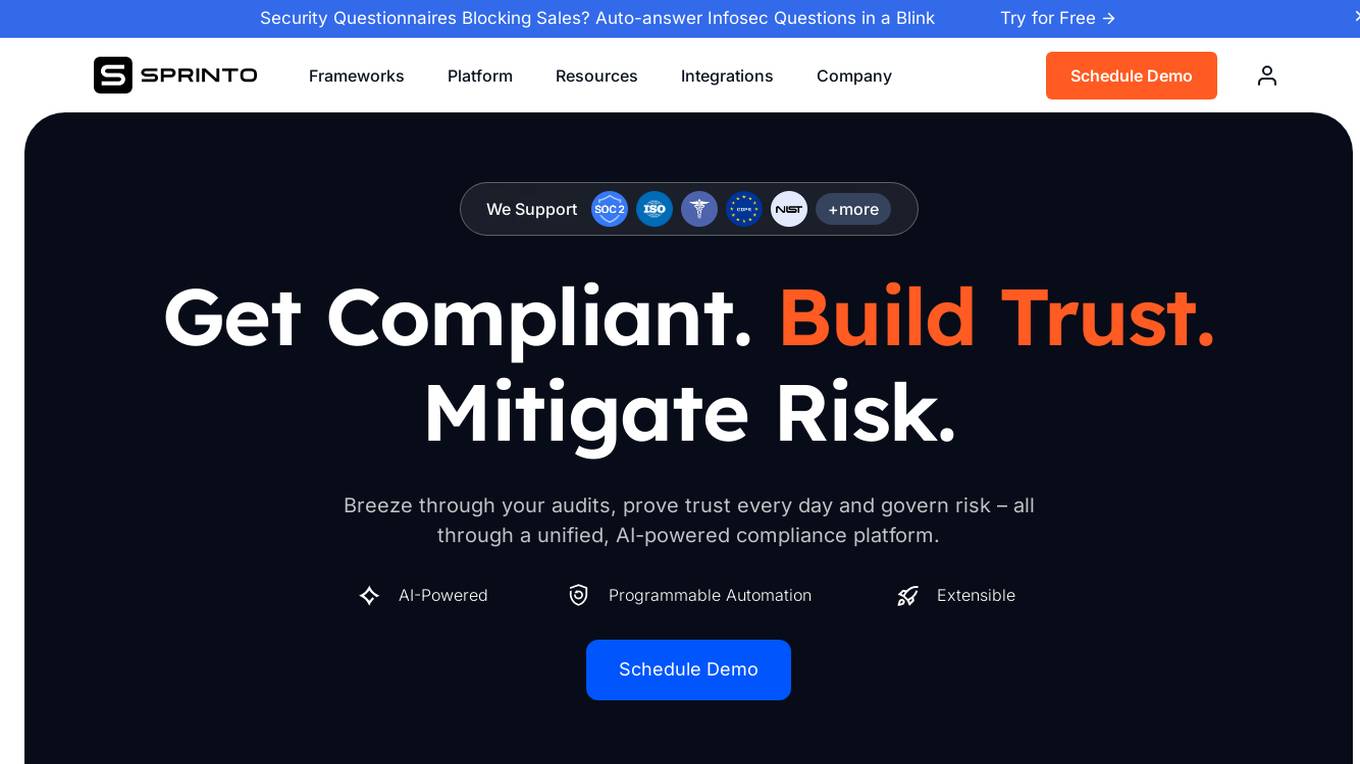
Sprinto
Sprinto is a Continuous Security & Compliance Platform that helps organizations manage and maintain compliance with various frameworks such as SOC 2, ISO 27001, NIST, GDPR, HIPAA, and more. It offers features like Vendor Risk Management, Vulnerability Assessment, Access Control Policies, Security Questionnaire, and Change Management. Sprinto automates evidence collection, streamlines workflows, and provides expert support to ensure organizations stay audit-ready and compliant. The platform is AI-powered, scalable, and supports over 40 compliance frameworks, making it a comprehensive solution for security and compliance needs.
0 - Open Source AI Tools
20 - OpenAI Gpts
Phoenix Vulnerability Intelligence GPT
Expert in analyzing vulnerabilities with ransomware focus with intelligence powered by Phoenix Security

WVA
Web Vulnerability Academy (WVA) is an interactive tutor designed to introduce users to web vulnerabilities while also providing them with opportunities to assess and enhance their knowledge through testing.
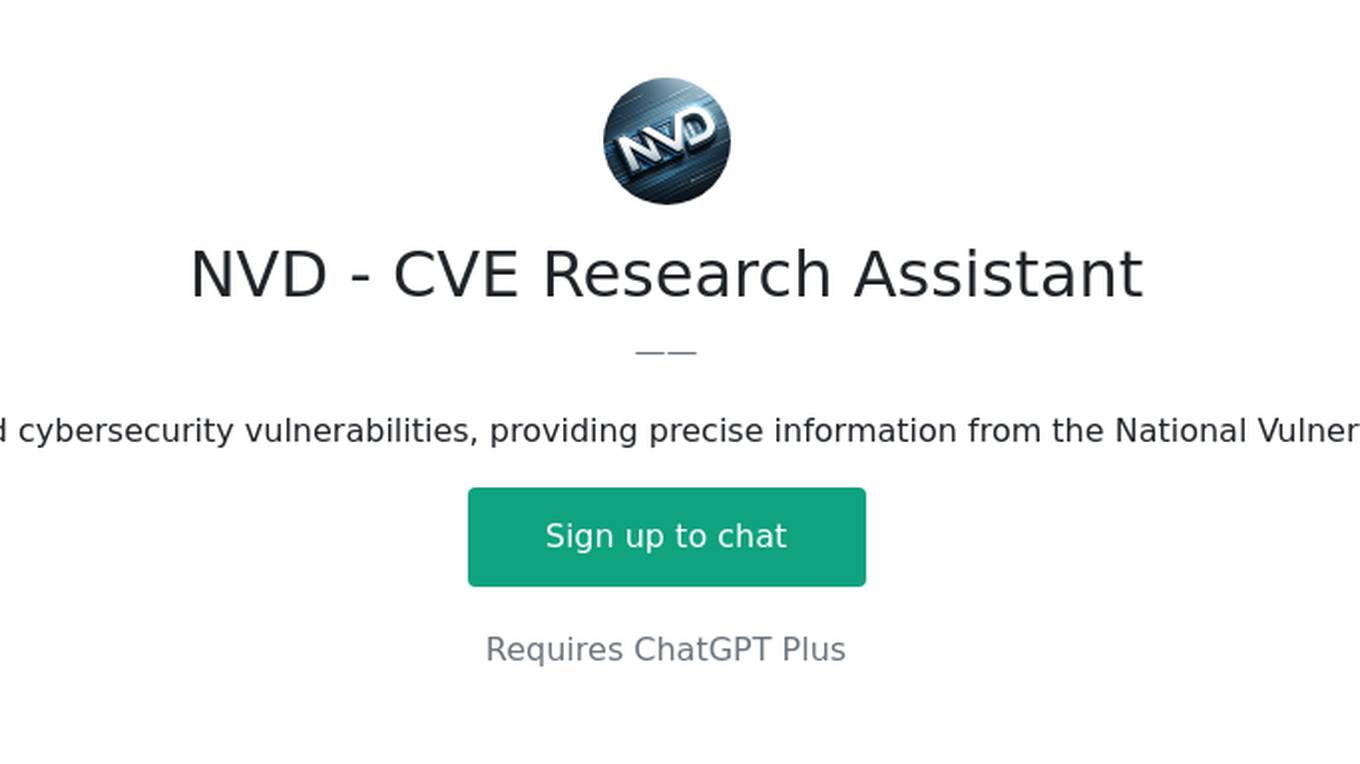
NVD - CVE Research Assistant
Expert in CVEs and cybersecurity vulnerabilities, providing precise information from the National Vulnerability Database.
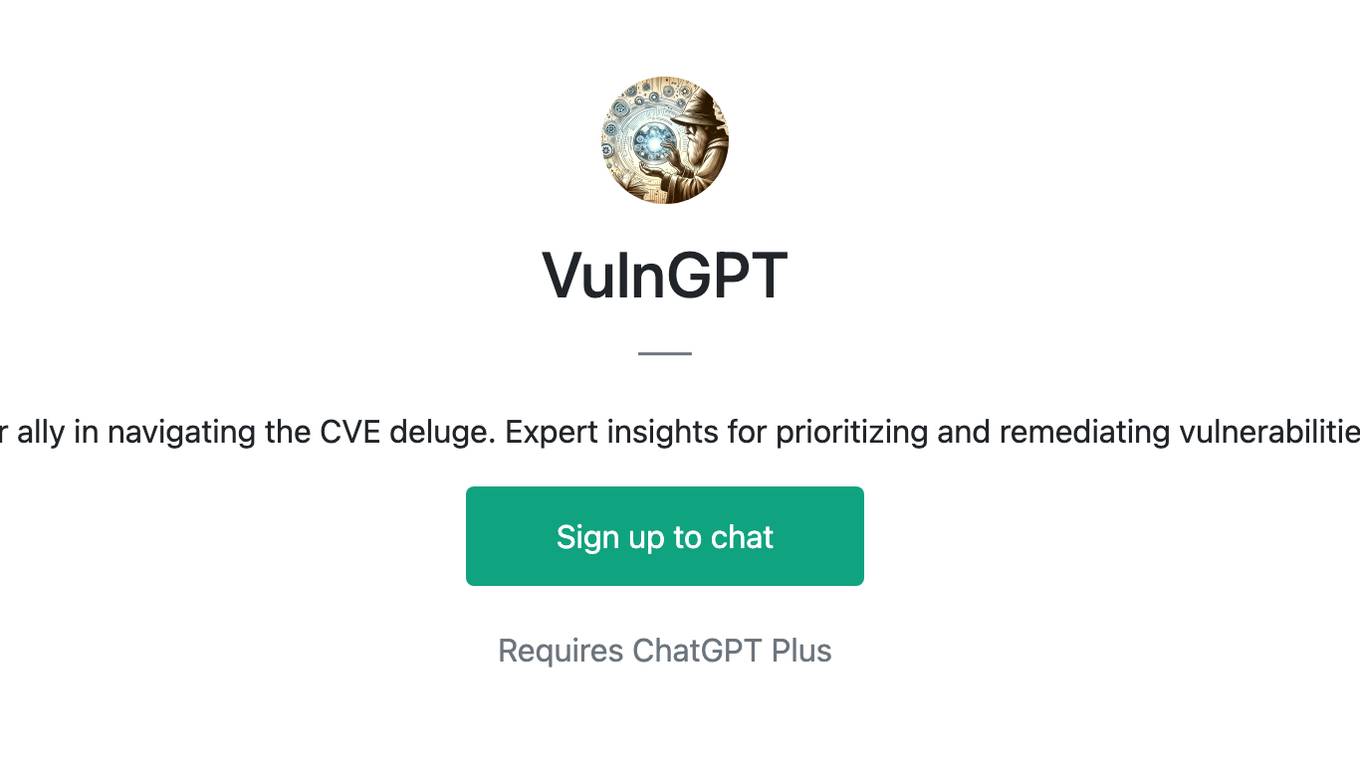
VulnGPT
Your ally in navigating the CVE deluge. Expert insights for prioritizing and remediating vulnerabilities.
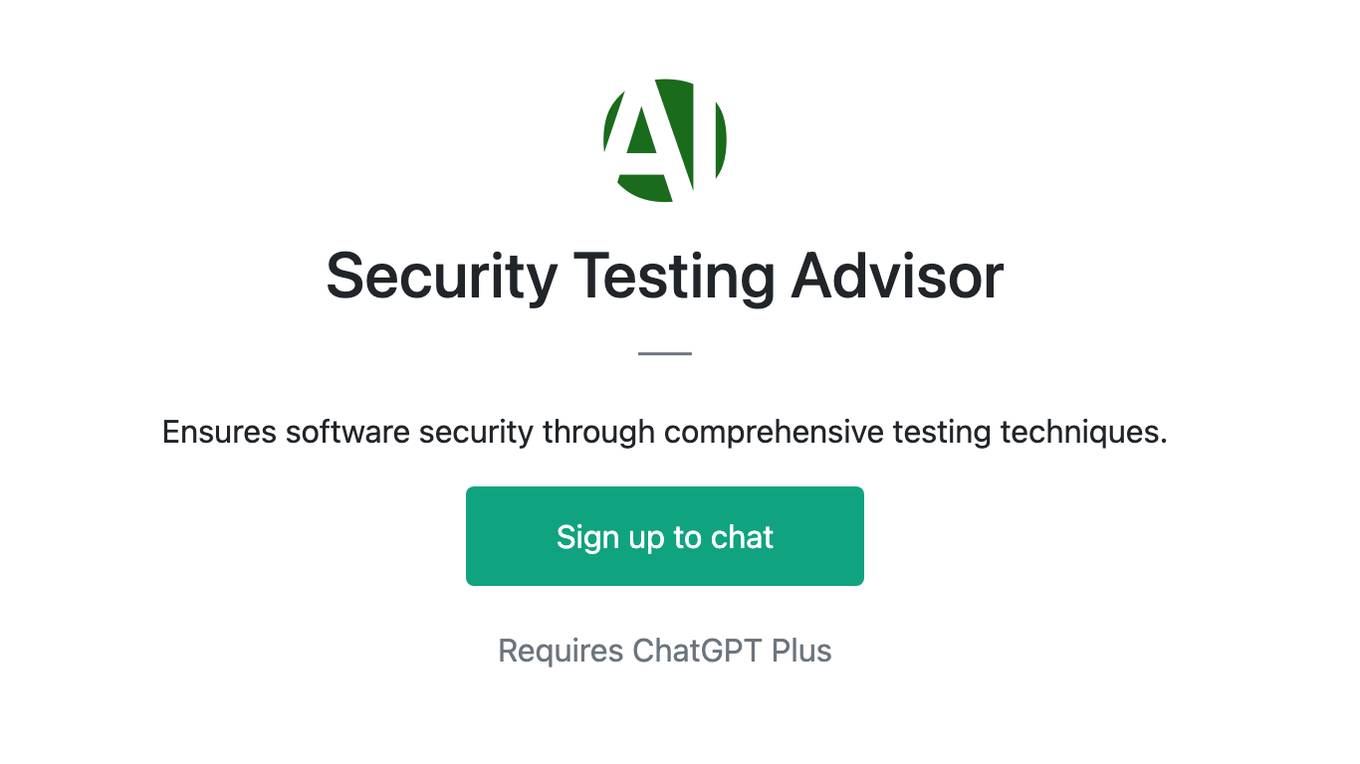
Security Testing Advisor
Ensures software security through comprehensive testing techniques.
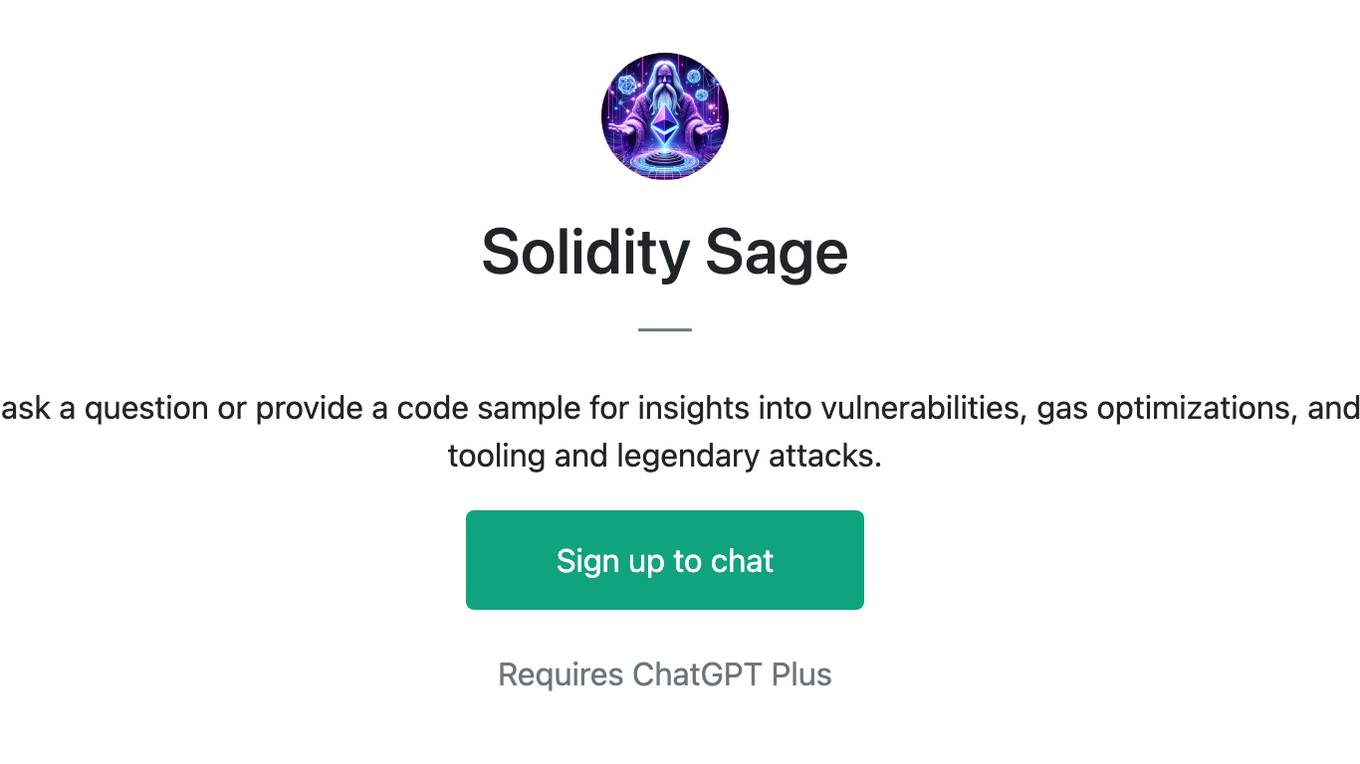
Solidity Sage
Your personal Ethereum magician — Simply ask a question or provide a code sample for insights into vulnerabilities, gas optimizations, and best practices. Don't be shy to ask about tooling and legendary attacks.

🛡️ CodeGuardian Pro+ 🛡️
Your AI-powered sentinel for code! Scans for vulnerabilities, offers security tips, and educates on best practices in cybersecurity. 🔍🔐

